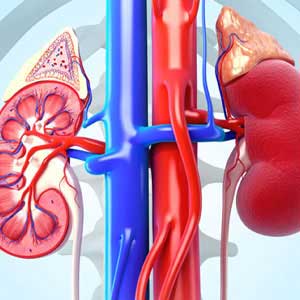Glomerulonephritis Treatment Vijayawada
Glomerulonephritis is a inflammation of the tiny filters in the kidneys (glomeruli). Excessive fluid and waste that glomeruli eliminate from the bloodstream leave the body in the form of urine. Glomerulonephritis can come on suddenly (acute) or gradually (chronic).
Glomerulonephritis happens on its own or as a component of another illness, like lupus or diabetes. Extreme or prolonged aggravation related with glomerulonephritis can harm the kidneys. Treatment relies upon the kind of glomerulonephritis you have.
Consult the best kidney doctors in Vijayawada for kidney inflammation treatment.
What causes glomerulonephritis?
Glomerulonephritis is caused by an issue with your immune system. In some cases, it's essential for a condition, like systematic lupus erythematosus (SLE) or vasculitis.
At times, it can be caused by infections, like:
- HIV
- hepatitis B and hepatitis C
- infection of the heart valves (endocarditis)
In most cases, glomerulonephritis doesn't run in families.
If you're diagnosed to have an inherited type of glomerulonephritis, a specialist can advise you about the possibilities of someone else in your family being impacted.
They might recommend screening, which can identify individuals who might be at increased risk of developing the condition.
What are the Symptoms?
Glomerulonephritis signs and symptoms might include:
- Pink or cola-shaded pee from red platelets in your urine (hematuria)
- Frothy or effervescent urine because of excess protein in the pee (proteinuria)
- Hypertension
- Fluid retention (edema) with swelling evident in your face, hands, feet and midsection
- Urinating less than normal
- Nausea & vomiting
- Muscle cramps
- Weakness

How is glomerulonephritis treated?
Treatment relies upon what caused the glomerulonephritis and the harm done to the kidney filters. A mild case may not require any treatment. At different times, your doctor might recommend:
- Changes to your diet with the goal that you eat less protein, salt and potassium.
- Corticosteroids like prednisone.
- Dialysis, which aids clean the blood, eliminate extra fluid and control with blooding pressure.
- Diuretics (water pills) to decrease swelling.
- Immunosuppressants, if a issue with the immune system causes the glomerulonephritis.
- Medication to decrease the blood pressure, for example, angiotensin-converting enzyme (ACE) inhibitors or angiotensin II receptor blockers.
- Plasmapheresis, a special process that channels protein from the blood.
How to Prevent from glomerulonephritis?
There might be no way to prevent a few types of glomerulonephritis. However, here are a few stages that may be helpful:
- Seek for brief treatment of a strep infection with a sore throat or impetigo.
- To prevent infections that can prompt a few types of glomerulonephritis, like HIV and hepatitis, follow safe-sex rules and stay away from intravenous medication use.
- Control hypertension, which reduces the probability of damage to your kidneys from hypertension.
- Control your blood sugar to assist with preventing diabetic nephropathy
Consult Dr. Anvesh Golla who is the best doctor for Systemic Lupus Nephritis Treatment In Vijayawada
